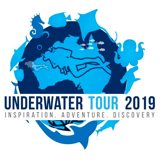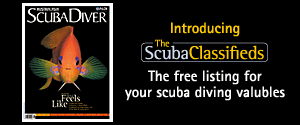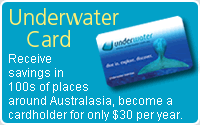- Home
- Directory
- Shop
- Underwater Cameras - Photographic Accessories
- Smartphone Housings
- Sea Scooters
- Hookah Dive Systems
- Underwater Metal Detectors
- Dive Gear
- Dive Accessories
- Diving DVD & Blu-Ray Discs
- Diving Books
- Underwater Drones
- Drones
- Subscriptions - Magazines
- Protective Cases
- Corrective Lenses
- Dive Wear
- Underwater Membership
- Assistive Technology - NDIS
- On Sale
- Underwater Gift Cards
- Underwater Art
- Power Stations
- Underwater Bargain Bin
- Brands
- 10bar
- AOI
- AquaTech
- AxisGo
- Backscatter Underwater Video and Photo
- BLU3
- Cayago
- Chasing
- Cinebags
- Digipower
- DJI
- Dyron
- Edge Smart Drive
- Eneloop
- Energizer
- Exotech Innovations
- Fantasea
- Fotocore
- Garmin
- Geneinno
- GoPro
- Hagul
- Hydro Sapiens
- Hydrotac
- Ikelite
- Indigo Industries
- Inon
- Insta360
- Intova
- Isotta Housings
- Jobe
- JOBY
- Kraken Sports
- LEFEET
- Mirage Dive
- Nautica Seascooters
- Nautilus Lifeline
- NautiSmart
- Nitecore
- Nokta Makro
- Oceanic
- Olympus
- OM System
- Orca Torch
- Paralenz
- PowerDive
- QYSEA
- Scubajet
- Scubalamp
- Sea & Sea
- SeaDoo Seascooter
- SeaLife
- Seavu
- Shark Shield
- Sherwood Scuba
- Spare Air
- StickTite
- Sublue
- Suunto
- SwellPro
- T-HOUSING
- Tusa
- U.N Photographics
- Venture Heat
- XTAR
- Yamaha Seascooter
- Youcan Robot
Mount Gambier

Beneath the city of Mount Gambier lie caves and sinkholes, above it bustles with shops, restaurants and galleries. Its best-known icon is the Blue Lake
This is the principal attraction of Mount Gambier that occupies one of the craters of the extinct volcano after which the city has been named. Any explanation of the mystery of its intense blue colouring has yet to be successfully proven. Early in November, the sombre blue, which is in evidence during the winter months, mysteriously changes to an intense deep turquoise blue almost overnight. The colouring remains until late February, when it gradually changes. From late March, it returns to a distinct sombre blue colouring that remains until the following November.
The 3.6 kilometre road and walking track around the circumference of the lake provides access to many viewing points, the most popular being the underpass between the Blue Lake and the Leg of Mutton Lake.
The surrounding cliffs average about 70 metres in height hight and form what is virtually a limestone bowl. Water is to a depth of around a further 70 metres, although soundings have been taken from 43 metres up to over 197 metres in one particular hole with a diameter of 36 metres. These soundings disproved earlier theories that the lake was bottomless.
With average depths of 70 metres of the lake contains 36,000 million litres. Being the source of water to the city, 3,600 million litres is pumped annually from the lake into holding tanks, which gravity feed water to the city and surrounds. For this reason now swimming or diving is permitted although tours to its surface are available.
In the Directory
Photos

- Skyline - Photo courtesy of Tourism SA

- Hay Bales, Mount Gambier - Photo courtesy of Tourism SA

- Pine Forest, Mount Gambier - Photo courtesy of Tourism SA
Underwater Recommendations
Discover diving with a difference and plunge into the fresh water lakes, sinkholes, cave and caverns at Mount Gambier. Besides the thrill there is also some life in the crystal clear lakes such as yabbies, eels, lobsters, and pygmy perch. To dive most of the sinkholes permission from landowners and permits from the Cave Divers Association Australia are required.
Getting There
The Limestone Coast is halfway between Adelaide and Melbourne, a four-hour drive, or one-hour flight from either city.
In the Directory

Shopfront
-
 Stay Slot Trays
Stay Slot Trays
- Sturdy Stay Slot Tray to connect the entire underwater photo system- housing, arms, flash and lights.
- From $AU 34.95
- 5% Cardholder's Discount!
Articles
-
 Ewens Pond, South Australia
Ewens Pond, South Australia
- Mt. Gambier in South Australia is a region filled with stunning freshwater lakes filtered by limestone, cave diving and extinct volcanoes. For divers without Cave qualifications Ewens Ponds beckons.









